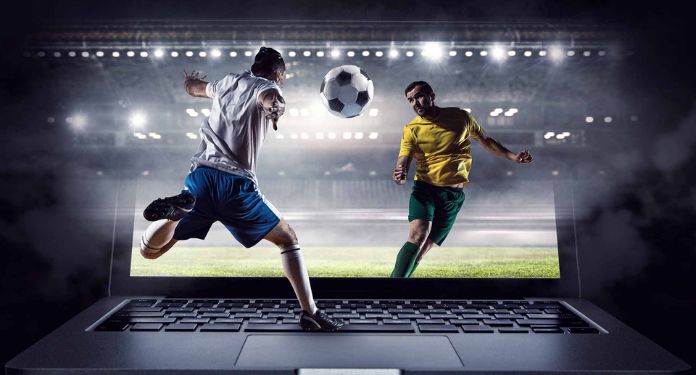Four years ago, Brazil began the process to legalize the sports betting market with Law No.
However, the great evolution of the modality on the national scene is remarkable, with several companies introducing themselves into the country’s economy and looking for ways to attract even more customers.
For this, many brands in the sector have closed partnerships with clubs and icons of Brazilian football, managing to get closer to fans and fans in a more efficient and direct way. Currently, bookmakers sponsor 19 of the 20 club clubs in the Brasileirão Serie A.
But something that was not foreseen in Law nº 13.756/2018, are the limits that bookmakers have for the advertising exploitation of brands and images of the sport. ConJur recently published an opinion article that discusses the topic and highlights its importance in keeping the sports betting market safer and fairer. The article was written by André Carvalho Sica, André Thomas Fehér Junior and Alice Maria Gallian.
Check out the full sports betting opinion article below.
Law No. 13,756/2018, enacted four years ago, legalized the sports betting market in Brazil, however, in article 29, the regulation of the activity is subject to subsequent regulation by the Ministry of Finance, which should take place by 2020. , as a result of the Covid-19 pandemic, as well as discussions about the provisions of said Law, this deadline was extended until the end of 2022, so the expectation is that the regulation will be approved later this year.
One of the important issues to be addressed in the imminent regulation would be regarding the limits of exploitation by companies in the sports betting market of brands, images and emblems of sports entities, athletes of the most diverse modalities. Today, in the text of Law No. 13,756/2018, there is no solid provision in this regard.
The urgency of tackling this issue in legislation is justified when we observe in television programs, radio, social networks, streaming platforms, sports betting companies indiscriminately and improperly appropriating the brands of the players in the sports market without any kind of authorization. .
Such practices constitute a clear violation of article 87 of Law nº 9.615/98 (Pelé Law) which guarantees 1) protection for sports entities regarding their brands, including their denomination and symbols, regardless of registration, guaranteeing them the right commercial use, as well as 2) to professional athletes, the rights relating to their image rights, including names, denominations, symbols and sports nicknames.
In the absence of any commercial agreements between companies in the sports betting market, sports entities and/or athletes, such practice constitutes, in addition to commercial discredit, brand counterfeiting and unfair competition, under the terms of article 5, VII, of the Federal Law No. 9,610/98 and articles 189 and 195 of Federal Law No. 9,279/96.
Still, under an attentive look at what the regulation of the advertising market provides, the use of such properties without proper licensing constitutes a practice of “ambush marketing”, largely prohibited by national legislation. It is even what the Advertising Self-Regulation Code (Conar) provides in its article 31, which expressly prohibits profits arising from the practice of advertising methods that are undue and illegitimate.
There are those who argue, however, that the assignment of rights over the brands of sports entities would be provided for and protected in Law 13,756/2018, specifically in its articles 17, item I, item i, 18, item I, item h, 20 , item V, 22, VIII and IX, 30, §1, item III, which provides for the tax benefit of sports entities that cede the property rights over their brands for the dissemination and execution of the fixed-odds lottery.
However, when carefully observing the aforementioned legal provisions, there is no obligation for sports entities to carry out such assignment. It is a faculty, in exchange for tax benefits. Consequently, if the sports entity did not expressly intend to carry out the aforementioned transfer, the problem of improper use of the properties of the brands of clubs and athletes would remain.
Not least, it is worth mentioning that these articles say nothing about the use of the rights of athletes’ images by sports betting companies. Therefore, in the absence of the respective licensing for the use of such image rights, they could not be conveyed in any way by the betting companies, as they are very personal rights, constitutionally protected.
In this way, it is certain that, in order to increase the security of the sports market, and make the protection of brands and images of clubs and athletes even clearer, it is necessary that the regulation to be implemented by Law 13,756/2018 addresses this issue. Anyway, while the regulation is not enough, it is necessary for sports betting companies to adapt and observe the clear provisions that are already in the existing legislation. Otherwise, the practice of their activities may be liable to civil and criminal liability, in addition to being prevented from operating in the country.




















































